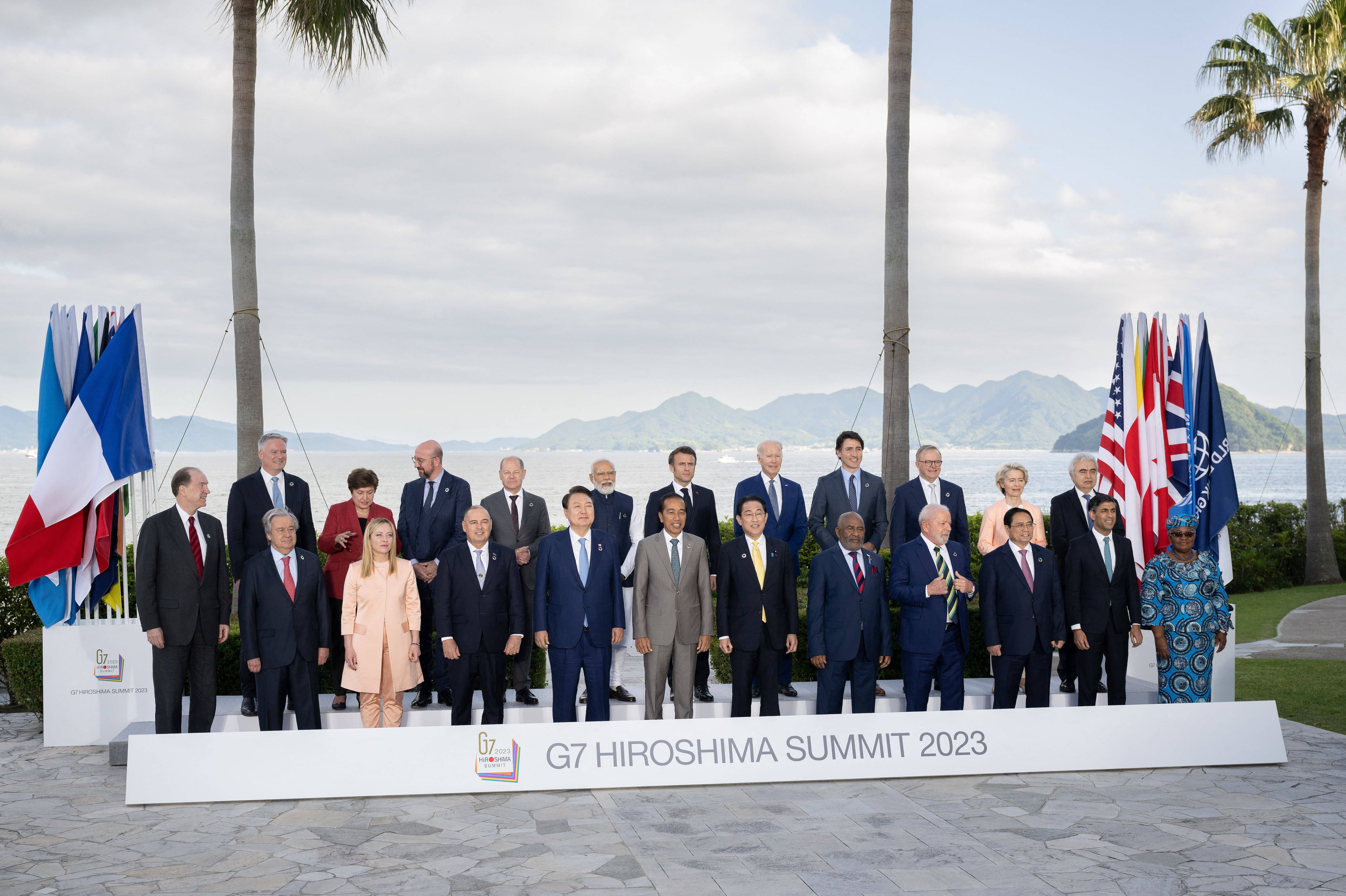
The President of the European Commission, Ursula von der Leyen, promised this Saturday during the G7 summit in Hirosima (Japan) that the strategy on economic security that the institution plans to present in June will be “proportionate” and at the same time “precise” with respect to the challenge of reducing foreign dependencies, especially China.
“The European Commission will propose next month an independent economic security strategy. It will be proportionate and accurate in dealing with new risks to our economic security.” He transferred the German to the leaders of the Group of Seven in the summit session dedicated to this matter, according to a transcript of his words distributed by his team.
The head of the Community Executive defended a “free and fair international order”but warned of “risk of using (economic) interdependencies as a weapon” geopolitics.
“We must be coordinated because fragmentation is expensive and we need predictability for our companies. So our common response is to reduce risk and not disengage (from China)”stressed the German at the summit of G7 leaders.
In this sense, Von der Leyen He thanked Japan for including this item on the summit’s agenda and stressed that the Asian country is “at the forefront” in “this important but relatively new issue”, so that the rest of the participants can learn from the “Japanese experience”.
The seven powers agreed today in a communiqué “work together to ensure that attempts to weaponize economic dependencies by forcing G7 members and their partners, including small economies, to comply and adapt, fail and face consequences.”
In particular, they were concerned about “the disturbing increase in incidents of economic coercion that seek to exploit vulnerabilities and dependencies”, and they called on all countries to refrain from exercising these practices, in an allusion to China, according to US government sources.
Therefore, the Group of Seven (Germany, Canada, USAFrance, Italy, Japan and the United Kingdom) and the European Union pledged to address and counteract policies and practices “designed to strengthen dependencies” because “undermine the functioning and confidence in the system of trade multilateral”.
In this sense, the leaders of these powers promised to review existing measures at the national level, their effectiveness, and develop new ones to effectively address the problem.
The Community Executive had planned, before the G7 summit, that it would present its strategy on economic security in the second half of June and the economic vice president of the institution, Valdis Dombrovskisalready said that “It must not become a pretext for mercantilism and protectionism.”
“We are discussing what are the risks we face, what are the instruments and what is the best way to address them,” the former Latvian prime minister assured at an economic forum held in Brussels at the beginning of May.
Source: Gestion
Ricardo is a renowned author and journalist, known for his exceptional writing on top-news stories. He currently works as a writer at the 247 News Agency, where he is known for his ability to deliver breaking news and insightful analysis on the most pressing issues of the day.












